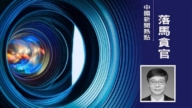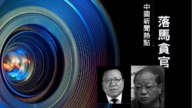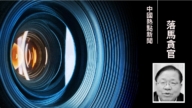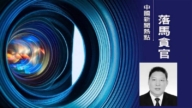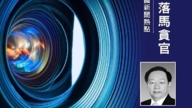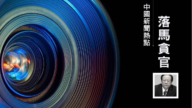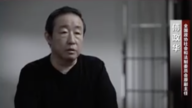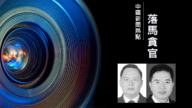【新唐人2015年02月12日訊】有海外媒體援引香港中聯辦宣傳部門的消息透露,中共總書記習近平的心腹、中共國家安全委員會辦公室副主任蔡奇,日前秘密來到香港,可能會對中聯辦進行調整,預計會有高官下臺,同時也顯示北京對香港特首梁振英的不滿。這則消息引發關注,我們一起來看看下面的分析報導。
中共國安委副主任蔡奇秘密赴港的消息,是由《博訊新聞網》2月10號披露出來的。報導稱,此舉據信是因為中央對中聯辦和香港特首梁振英不滿,因此越過組織部、港臺辦、國安部,直接插手香港人事,預計會有高官下臺。
這則報導在香港政界引發熱烈討論。有政界人士向《蘋果日報》政論節目《壹錘定音》主持人李慧玲透露,將有比蔡奇更高級的官員,來港親自收集民情。他還說,中央派高官來港,最想問的一個問題是:為甚麼九七(年)主權轉移後,香港年輕人會有離心,甚至支持香港獨立?
梁振英1月中旬發表《施政報告》時,曾點名批評香港大學學生會刊物《學苑》去年2月號封面專題——《香港民族命運自決》,直斥文章是「主張香港獨立」的言論,認為值得警惕。當晚,港大《學苑》發表聲明,批評梁振英敵視年輕世代,使施政報告大會淪為「批鬥」年輕人的平臺,要求梁振英收回言論,停止打壓公民發表言論的權利。
李慧玲指出,如果習近平認同梁振英處理香港青年的手法,就不用派蔡奇來港。相反,阿里巴巴集團董事局主席馬雲,日前成立10億基金助香港青年創業,外界一直視為有中央身影,顯示北京想採取較柔性方法對待香港青年。
時事評論員邢天行:「王岐山講了,反腐的目的是要爭取民心,他們也意識到了,得不到民心的話,就不可能執政下去。」
香港立法會議員單仲偕:「香港政府可能在4月到6月之間,將(政改)決議案送到立法會去表決,這個決議案會在最後階段要到港澳協調小組拍板決定,可能也要送到國家安全委員會,所以蔡奇來香港做一個祕密參訪,我的估計,就是他要第一手的消息,第一手的資料去報告國家安全委員會。」
公開資料顯示,現年59歲的蔡奇是福建人,曾長期在福建和浙江兩地任職,與習近平有20年的上下屬關係。
香港政圈一直有一種說法,指雨傘運動爆發後,北京不滿梁振英及中聯辦此前謊報港人在中共人大作出香港政改決定後的民情,而且運動期間還企圖開槍鎮壓佔中人士,犯下陷習近平於不義的大罪。
單仲偕:「會不會要整頓中聯辦,我想這個可能是比較放大一點,但是過去一年實實在在發生了不少的事情,會不會將這個事情放到中聯辦的頭上,也不是沒有可能,因為不少的東西雖然是特區政府處理,但是中聯辦也有不小的影響力。中央如果要問政治責任,梁振英或者是中聯辦的負責人也是要承擔部分的責任。」
時事評論員邢天行認為,習近平派心腹蔡奇到香港,主要是摸底,讓中聯辦人員效忠習近平。
邢天行:「中聯辦的許多人,他們的背景都是中共派的,帶有特工色彩的,尤其在前期滲透到香港去的都是跟國安系統有關的人,所以蔡奇被派往香港,是給這些國安以前派出的各方面人員一個強烈的信息,就是說,現在你的領導是誰,有這樣的意味,也就是說,效忠的目的是非常明顯的。因為在過去,曾慶紅和江澤民在香港搞了一個系統,安插他們的人員在裡面。」
也有分析認為,這次由蔡奇負責處理中聯辦的人事調整,是習近平打擊江派的最安全做法。
邢天行指出,隨著國內反腐往前推進,各方面逐漸開局之後,習近平會把一部分力量放在香港。在清除江澤民、曾慶紅之前在香港布下的人馬之後,習近平能不能適應香港的局面,或者採取甚麼措施,大家都在拭目以待。
採訪/陳漢 編輯/陳潔
Xi Jinping Sent Trusted Subordinate to Hong Kong:
Signaling a Purge Within The Liaison Office?
An overseas Chinese media reported from sources at Hong
Kong’s Liaison Office about a secret visit to Hong Kong by
Cai Qi, a trustee of Chinese Communist Party (CCP) President
Xi Jinping
Cai is deputy chief of the Central National Security
Commission (CNSC) General Office under Xi Xinpping.
The move is believed to be a signal of upcoming personnel
adjustments among the Liaison Office’s leaders.
It also reflects Beijing’s discontent toward Leung Chun-ying.
The news quickly drew attention in Hong Kong.
Let’s look at the report below.
On Feb.10, Boxun news website reported CNSC General
Office deputy chief Cai Qi’s secret visit to Hong Kong.
The report said the move was believed to reflect discontent
of current party leaders toward the Hong Kong executive.
Beijing is directly interfering with staff matters of the Hong
Kong Liaison Office without going through the Organization
Department, HK and Taiwan Affairs Office and State Security
Ministry. It is expected high-level officials will be dismissed.
Hong Kong’s political circles discussed the matter.
Li Wei-ling, host of an Apple Daily online political program,
was told by an anonymous politician that Cai Qi’s bosses
will also visit Hong Kong to collect Hong Kong’s public views.
The source further revealed that, Beijing wants to know
why Hong Kong’s young people have turned against Beijing,
or even support the Hong Kong Independence movement
since the Handover in 1997?
In his Policy Address in January, Leung Chun-ying named
Undergrad, a student journal of Hong Kong University.
He criticized its cover story of February 2014 “Hong Kong
Should Determine Its Own Fate" as promoting independence.
Leung called the article “a signal to be alarmed at".
The same night, Undergrad official responded to Leung’s
comments, stating that Leung’s hostile attitude toward
Hong Kong’s young generation turns the annual policy
address into a platform of denouncing the group.
The journal demanded Leung retract what he said and
stop suppression of civil rights and free speech.
Li Wei-ling commented that, Xi Jinping would not send
Cai Qi to Hong Kong if he agrees with Leung Chun-ying’s
attitude toward Hong Kong’s young people.
Alibaba Chairman Jack Ma just donated 1 billion HKD to
support young people in setting up their own businesses.
The move is believed to be backed by Beijing.
This suggests the current party leaders tend to treat
Hong Kong’s new generation in a more moderate manner.
Xing Tianxing, political commentator, “Wang Qishan said
the anti-corruption campaign is to win public support.
The current CCP leaders know that their governance will
be terminated if they are not supported by the people."
Sin Chung-kai, member of HK Legislative Council, “The
Hong Kong government will possibly put the reform plan
to vote between April and June.
The plan has to be approved by the Hong Kong and Macau
Coordinate Group in the final steps.
It can possibly be reviewed by the CNSC as well.
In my opinion, Cai Qi’s secret visit to Hong Kong is to collect
first-hand information as reference for the CNSC."
Open data show that Cai Qi, 59, was born in Fujian Province.
He worked in Fujian and Zhejiang for a long time, and has
been a subordinate to Xi Jinping for 20 years.
A popular opinion among Hong Kong political circles is that
Beijing was not happy with Leung Chun-ying and the Liaison
Office for their false report of Hong Kong public opinions of
the White Paper after the umbrella movement broke out.
Leung also attempted to shoot Occupy Central activists,.
A serious crime that might have made Xi Jinping
be the scapegoat.
Sin Chung-kai, “Will there be purging moves at the Liaison
Office? I think now this is more likely to happen.
So many incidents occurred during the past year.
It is possible to call the Liaison Office to account.
The Liaison Office do have a strong impact on decisions
although those may be made by the Hong Kong government.
If Beijing wants to hold politicical people responsible, Leung
Chun-ying and Liaison Office heads should be on the list."
Political commentator Xing Tianxing said, Xi Jinping sent
Cai Qi to Hong Kong mostly to know the real situation there,
and have the Liaison Office officers pledge loyalty to Xi.
Xing Tianxing, “Many Liaison office officers have
a background from the CCP’s spying system.
Especially for those infiltrated to Hong Kong in the early
years, most of them are from the State Security Department.
Cai Qi’s visit to Hong Kong serves as a serious warning to
these people: ‘Who is your boss right now?’
The move is clearly a test to their loyalty because Zeng
Qinghong and Jiang Zemin set up the system and planted
their followers within it in Hong Kong."
Some analyst commented that sending Cai Qi to Hong Kong
is the safest way for Xi Jinping to strike at Jiang’s faction.
Xi will make staff changes among the Liaison Office.
Xing Tianxing said, as Xi makes more progress in his anti-
corruption campaign, he will focus more on Hong Kong affairs.
After eliminating Jiang Zemin and Zeng Qinghong’s forces
in Hong Kong, what will Xi Jinping do next?
How will he react to Hong Kong’s situation?
The entire world is waiting to see the answer.
Interview/ChenHan Edit/ChenJie


